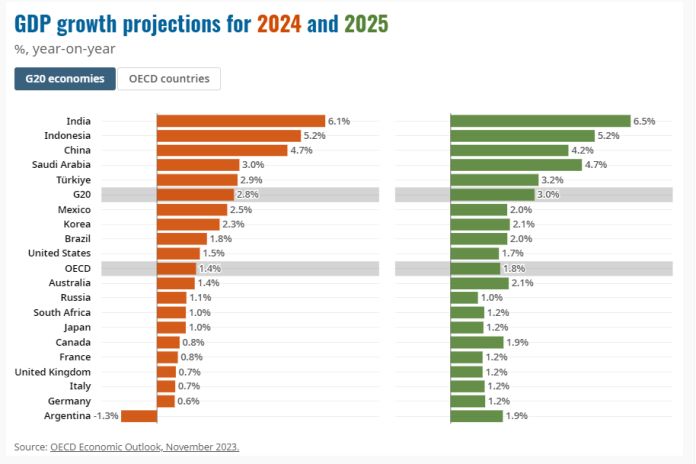Student Loan Forgiveness Under Trump: A Black Perspective

Table of Contents
The Trump Administration's Approach to Student Loan Relief
The Trump administration's overall approach to student loan debt relief was characterized by a focus on incremental changes rather than sweeping reforms. While there were no major new forgiveness initiatives launched, existing programs underwent minor modifications. This approach, while seemingly pragmatic, failed to adequately address the deep-seated inequities within the student loan system, particularly impacting Black borrowers who already face significant systemic challenges.
Limited Expansion of Existing Programs
Existing programs like Public Service Loan Forgiveness (PSLF) saw some minor adjustments under the Trump administration. These changes, however, often fell short of meaningfully impacting the large number of Black borrowers struggling with repayment.
- Public Service Loan Forgiveness (PSLF): While the Trump administration didn't fundamentally alter PSLF, its implementation remained plagued by bureaucratic hurdles, leading to low forgiveness rates overall. These complexities disproportionately affected Black borrowers due to factors discussed below.
- Eligibility Criteria: Minor tweaks to eligibility criteria in some programs, while possibly intended to streamline the process, often inadvertently created additional barriers for Black borrowers who may have lacked the resources or information to navigate the complex requirements.
- Impact on Black Borrowers: The limited expansions and persistent complexities of existing programs resulted in minimal relief for Black borrowers, failing to address the underlying systemic issues contributing to their disproportionate debt burden.
Focus on Income-Driven Repayment (IDR) Plans
The Trump administration emphasized Income-Driven Repayment (IDR) plans as a primary tool for managing student loan debt. While IDR plans can offer temporary relief, they often prolong the repayment period, ultimately leading to higher overall interest payments.
- Statistics on Black Borrowers Using IDR Plans: Data suggests a higher percentage of Black borrowers utilize IDR plans compared to other racial groups, reflecting their greater need for debt management strategies.
- Potential Benefits and Limitations: IDR plans provide short-term affordability but can result in significantly larger total repayments over time.
- Challenges in Navigating IDR Programs: Many Black borrowers face significant challenges understanding and accessing IDR programs, including difficulties navigating complex application processes and a lack of accessible information.
Disparities in Access to Student Loan Forgiveness for Black Borrowers
The disproportionate burden of student loan debt among Black borrowers is not a new phenomenon. It's a consequence of historical and systemic factors that create significant barriers to educational attainment and economic mobility.
The Role of Systemic Racism in Student Loan Debt
Systemic racism has played, and continues to play, a crucial role in creating and perpetuating the student loan debt crisis within the Black community. This includes:
- Unequal Access to Quality Education: Generational inequities in access to quality K-12 education and higher education opportunities have created a significant disadvantage for Black students, leading to increased reliance on student loans.
- The Wealth Gap: The persistent wealth gap between Black and white families limits access to financial resources for college, leading to a greater reliance on loans and exacerbating existing debt burdens.
- Discriminatory Lending Practices: Historically, discriminatory lending practices have resulted in Black borrowers facing higher interest rates and less favorable loan terms, contributing to higher overall debt.
Challenges Navigating the Student Loan Forgiveness System
Black borrowers often face significant obstacles in accessing and understanding student loan forgiveness programs. These hurdles are often rooted in systemic issues:
- Bureaucratic Hurdles: The complex application processes and confusing requirements of student loan forgiveness programs present substantial challenges for many borrowers, disproportionately affecting those with limited resources or support.
- Lack of Clear Information: The lack of clear and accessible information about student loan forgiveness programs creates confusion and makes it difficult for borrowers to understand their options and eligibility.
- Language Barriers: Language barriers can create additional obstacles for some Black borrowers, preventing them from fully understanding the complex terminology and procedures involved in applying for loan forgiveness.
- Mistrust in the System: Historical experiences of systemic racism and discrimination within the financial system can lead to a lack of trust in government programs, making borrowers hesitant to engage with the process.
Alternative Solutions and Advocacy Efforts
Addressing the student loan debt crisis within the Black community requires a multifaceted approach involving community support, policy changes, and increased advocacy.
Community-Based Organizations and Support Networks
Several community-based organizations are playing a vital role in providing support and resources to Black borrowers navigating the complex student loan system:
- Financial Literacy Workshops: Many organizations provide financial literacy workshops and resources designed to help borrowers understand their options, manage their debt, and navigate the application process for student loan forgiveness.
- Advocacy and Legal Aid: Organizations provide legal assistance and advocacy services to help borrowers navigate bureaucratic hurdles and challenge discriminatory practices.
- Networking and Support Groups: Support groups and networking opportunities connect borrowers with peers who share similar experiences, providing emotional support and practical advice.
Policy Recommendations for Addressing the Disparities
To improve equity and access to student loan forgiveness for Black borrowers, several policy changes are essential:
- Simplified Application Processes: Streamlining the application process and simplifying the requirements for student loan forgiveness programs can significantly improve access and reduce bureaucratic barriers.
- Improved Communication and Outreach: Targeted outreach and communication campaigns are necessary to ensure that Black borrowers have access to clear and accessible information about student loan forgiveness programs.
- Addressing Underlying Systemic Inequalities: Addressing the root causes of the student loan debt crisis within the Black community requires systemic change, including investments in education, affordable housing, and addressing racial wealth disparities.
Conclusion
The Trump administration's approach to student loan forgiveness failed to adequately address the profound disparities faced by Black borrowers. The limited expansions of existing programs, coupled with persistent systemic inequalities, exacerbated the challenges already faced by this community. To achieve meaningful change, a targeted approach is essential, focusing on simplifying application processes, improving communication, and fundamentally addressing the systemic racism that contributes to the disproportionate burden of student loan debt on Black borrowers. We must advocate for policies that prioritize racial equity in student loans and actively support organizations working to empower Black borrowers. Continued research and engagement are crucial in fighting for genuine student loan forgiveness and racial justice within the student loan system. Let's continue the conversation and demand meaningful action on Black student loan debt.

Featured Posts
-
 Japans Q1 Economic Slowdown Examining The Pre Tariff Situation
May 17, 2025
Japans Q1 Economic Slowdown Examining The Pre Tariff Situation
May 17, 2025 -
 Fortnites Cowboy Bebop Crossover Grab The Freebies Before They Re Gone
May 17, 2025
Fortnites Cowboy Bebop Crossover Grab The Freebies Before They Re Gone
May 17, 2025 -
 Angelo Stiller Transfer Liverpool Submits Bid To Stuttgart
May 17, 2025
Angelo Stiller Transfer Liverpool Submits Bid To Stuttgart
May 17, 2025 -
 Josh Harts Wife Reacts To Jaylen Browns Game 5 Performance
May 17, 2025
Josh Harts Wife Reacts To Jaylen Browns Game 5 Performance
May 17, 2025 -
 Golden State Valkyries Add Former Minnesota Lynx Standout
May 17, 2025
Golden State Valkyries Add Former Minnesota Lynx Standout
May 17, 2025
